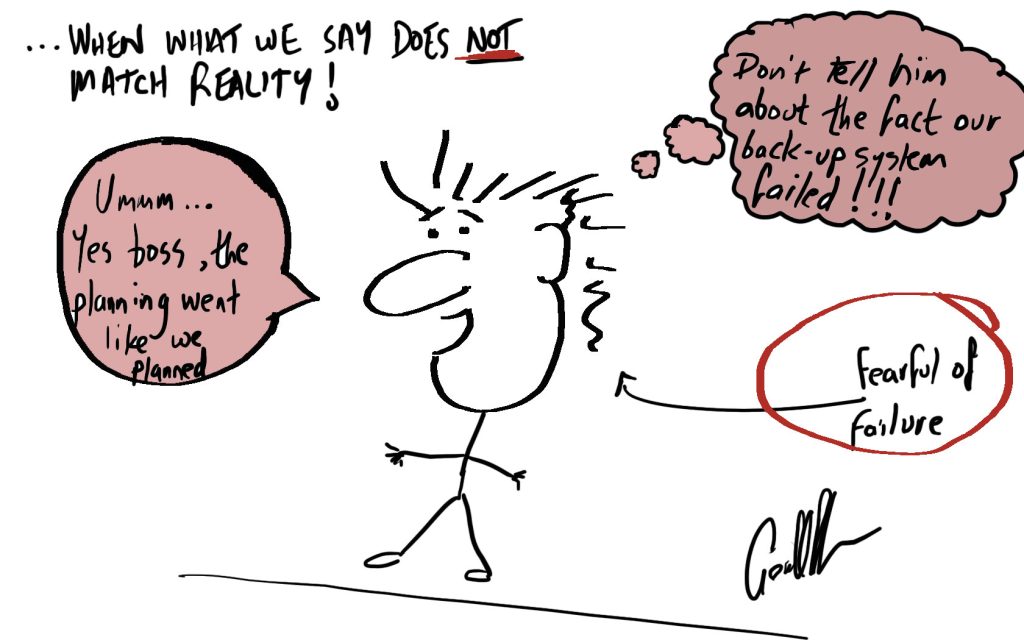Silo Busting
Nice post by Les Robinson over at Change Moments … How to bust silos based on this article by Graham Winter.
I liked Les’ summary of success factors for business initiatives …
When initiatives succeeded
When business initiatives succeeded, the ‘players’ were likely to be:
- sharing the big picture: companies created and shared one big picture, found common goals and synergies and focused on what was best for the organisation
- sharing the reality: employees were focused on real performance, made fact-based decisions and had the tough conversation rather than avoiding reality
- sharing the air: companies invited ideas from employees in every area of the business, and employees expressed opinions clearly and succinctly and listened to others
- sharing the load: employees prioritised and planned together, were clear about roles and expectations and looked for common ground
- sharing the wins and losses: companies paid close attention to joint results, learned and adapted together and rewarded true performance.

Reading this reminded me of something I used with a business management team last week. Karl Weick and Kathleen Sutcliffe, in their book Managing the Unexpected, coined the term ‘High Reliability Organisations’ who have a culture that support complex problem solving. I think these organisation would be very adept at busting open silos as well. The 5 characteristics that these HRO’s exhibited were:
1. Non Blaming – errors and near errors are studied and learned from … staff are rewarded for admitting mistakes and not punished
2. Acknowleding complexity – people acknowledge that despite everyone’s best efforts disaster is imminent and can occur at any time
3. Integrating strategy and operations – strategic and operation decisions are done at the same time and those in operations are present and have input into strategy
4. Valuing resilience – because disaster unavoidably happen, it is critical to respond quickly and get back to normal operations … this required resilience on the part of everyone and must be developed before things go wrong
5. Expertise outranks rank – on any issue, those who have relevant expertise are listened to, whatever their rank or status.
(Hat tip to Bob Dick for the summaries here).
In sum – For me the common feature here is the ‘mindset’ that successful organisations and teams have developed. In linking this back to my recent post ‘Plain Speak gets you Everywhere’, when a culture practices things described above like ‘sharing the air’ or ‘admitting mistakes’, they abiding by a simple set of rules to do quite complex work. It is not necessary to develop a strict set of measurable ‘performance indicators’ against these behaviours as “they are directly observable … (and) other dimensions such as purpose & direction and identity are accessed through these behaviours. The use of story provides a means of doing so, as do art, metaphor and drama”. (Bob Dick. 2006)
Geoff
